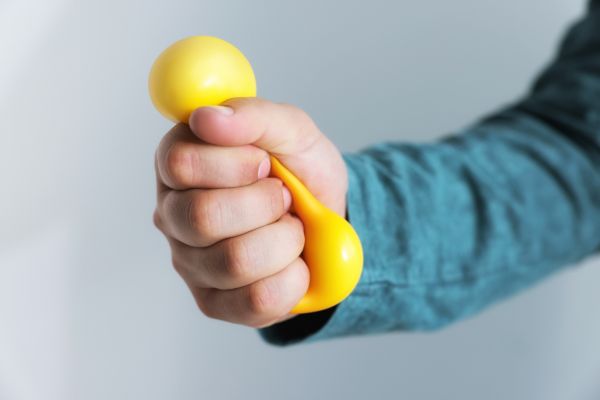Navigating the path to sobriety requires resilience, support, and practical strategies to manage stress and triggers. One powerful tool in this journey is an on-the-go coping kit—a personalized collection of items and coping strategies for addiction recovery designed to provide immediate relief and support when you need it most.
Let’s explore the importance of a coping kit, what essential items to include, and how to customize and maintain it to suit your needs best.
Understanding the Need for a Coping Kit
Stress and the urge to revert to old habits can strike at any moment for people in recovery.
In these cases, having a portable coping kit becomes crucial to maintaining your sobriety when you feel most vulnerable, wherever you are. A coping kit provides immediate relief and support, helping you manage stress and stay on your recovery path.
Note that when we say “kit,” we don’t just refer to a physical bag of tools, although it can undoubtedly include small or portable items.
Essential Items for Your On-the-Go Coping Kit
A well-thought-out coping kit should include various tools that address different aspects of your well-being. Customization is essential, so you should take these recommendations as something other than the be-all and end-all of coping kits.
Start With Emotional Support Tools
Keeping affirmation cards around can be a lifesaver. Your cards could have messages like “I am strong” or “I am in control.” It may sound silly if you’ve never tried it, but writing them yourself and reading them aloud when stressed can be very powerful.
Additionally, keeping photos of loved ones in your coping kit can provide comfort and motivation. These images remind you of the support network that believes in your ability to stay sober. Remember that no one is an island.
Add Some Physical Items for Stress Relief
Sometimes, the simplest solution is the best, and all many people need is a tactile activity that doesn’t require too much effort or concentration. If that’s how you cope with stress, there are all kinds of stress relief and stim toys you can look into.
A stress ball, for instance, is a simple yet powerful tool for managing anxiety. Squeezing can help release built-up tension, keep your hands occupied, and distract you from cravings.
Essential oils like lavender and chamomile can also be incredibly soothing. A few drops on your wrist or a quick inhale can promote relaxation and reduce stress.
Hunger and the irritability that comes with it are also significant triggers, which is why specialists emphasize the importance of eating well during recovery and beyond. Healthy snacks such as nuts or granola bars can help relieve hunger-induced stress and irritability while keeping your body nourished and balanced.
Other items you may want to add for stress release include:
- Chewing Gum
- Smooth stones, worry stones, or other objects with soothing textures
- Portable puzzles like a Rubik’s cube
- Fidget spinners
- A stuffed animal
- Silly putty
Consider Mindfulness and Relaxation Aids
A small guide or card with instructions for deep breathing exercises can be a lifesaver in stressful situations. These exercises can quickly lower your heart rate (reducing other physical symptoms of stress like sweating and racing thoughts) and bring much-needed calm during vulnerable bouts.
If you need more than just a few minutes of controlled breathing to calm down, having a meditation app on your phone allows you to engage in guided mindfulness sessions wherever you are. Some places may be more optimal than others, but these sessions can help you focus your mind and reduce anxiety.
Creating a calming or uplifting music playlist is another excellent stress management method. Music has a powerful effect on our emotions, and listening to your favorite tracks can provide an immediate mood boost and a welcome distraction from negative thoughts.
Other relaxation strategies you may want to consider include:
- Meditation beads
- Acupressure rings
- An eye mask to limit sensory overload while calming down
Bring Some Healthy Distractions
Including a puzzle book in your coping kit, such as Sudoku or crossword puzzles, can provide a mental challenge that distracts you from stress and cravings. Engaging your brain in these activities can be both soothing and stimulating. Games like these are also available as mobile apps, which makes them even more accessible.
Similarly, carrying a book that you can quickly dive back into can offer a quick escape as a means to relax. Reading allows you to immerse yourself in another world, providing a break from your current worries.
How to Customize Your Coping Kit
Everyone’s journey to sobriety is unique, so your coping kit should be personalized to suit your specific needs and preferences.
However, you are the only person who can say what truly works. Reflect on what has helped you manage stress in the past and consider incorporating those elements into your kit. For example, if you find comfort in knitting or drawing, include small supplies for those activities.
Most importantly, learn to keep an open mind and have patience. Just because an activity worked for someone else but not you doesn’t mean it’s a waste of time. Experiment with various coping strategies and find out what works for you.
Maintaining and Updating Your Coping Kit
Coping mechanisms that worked a month, a year, or a decade ago might be less effective today. Like everyone else, you change over time, and those changes reflect on the recovery tools you employ during your journey to long-term sobriety.
Remember the shifting nature of recovery, and regularly review and update your coping kit to ensure it remains relevant. Remove items that no longer serve you and add new ones that align with your evolving needs and interests.
Remember, the journey to sobriety is long and changes over time. However, having the right tools at your fingertips can make all the difference in maintaining your progress and achieving lasting recovery.
